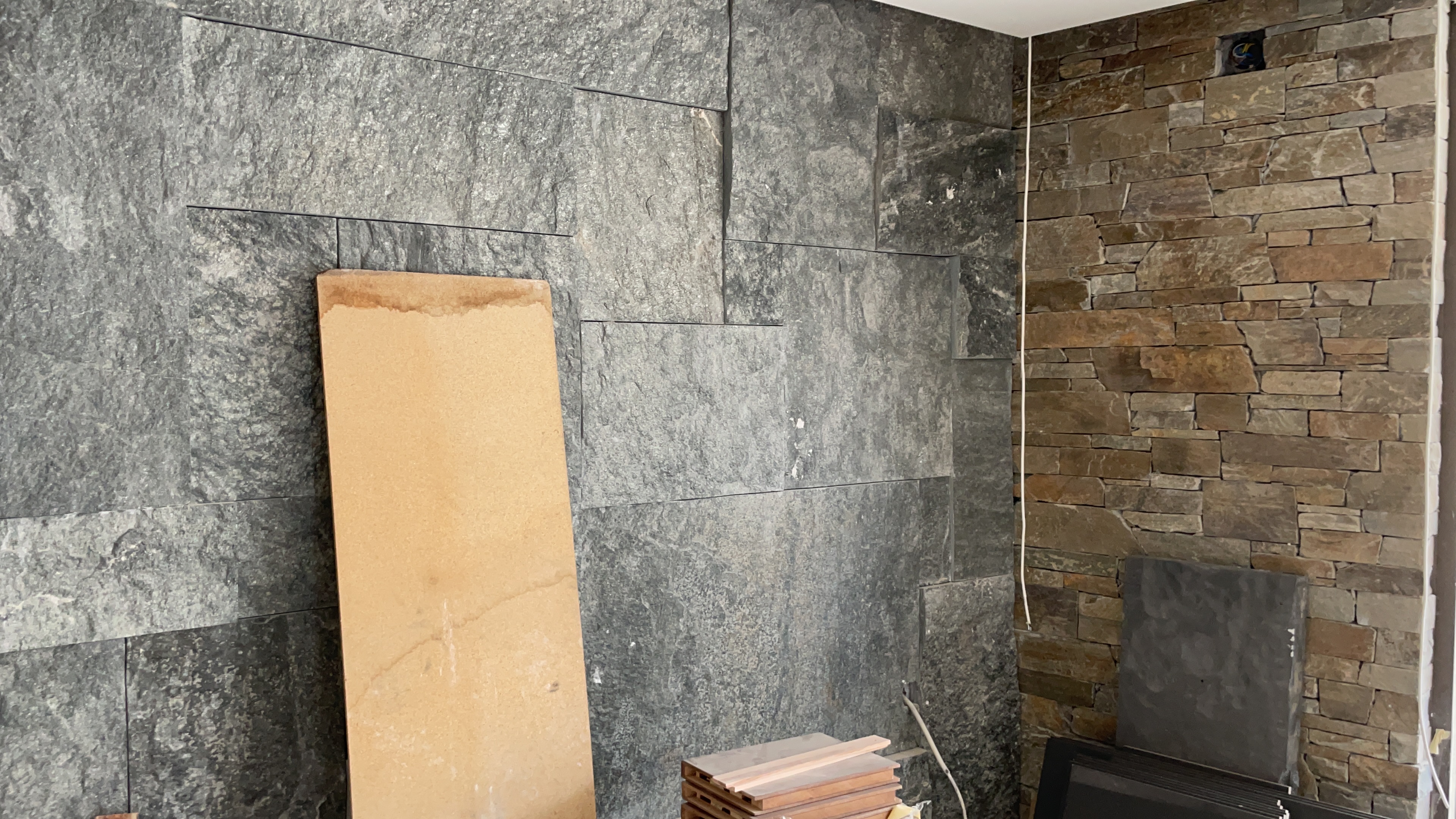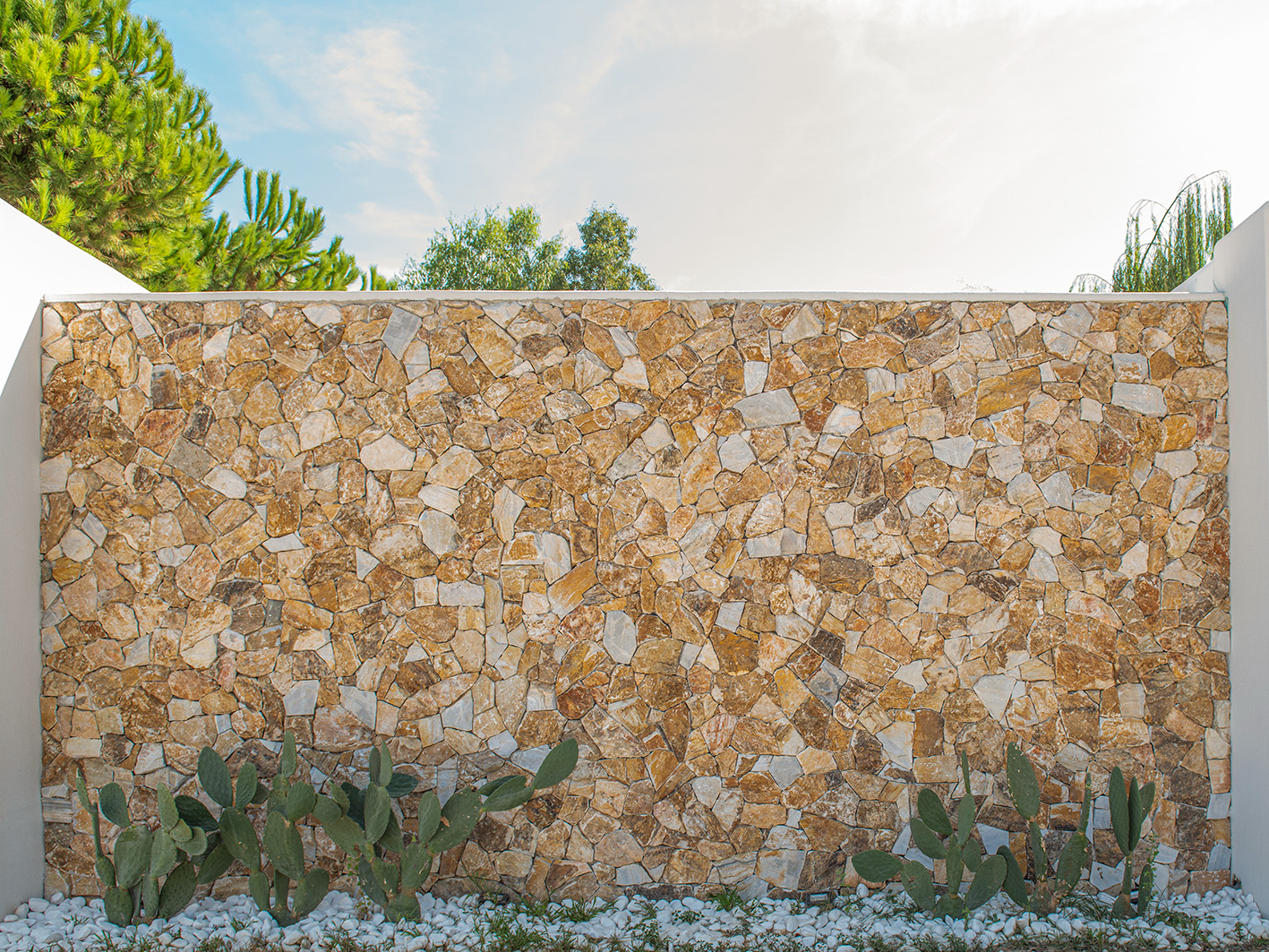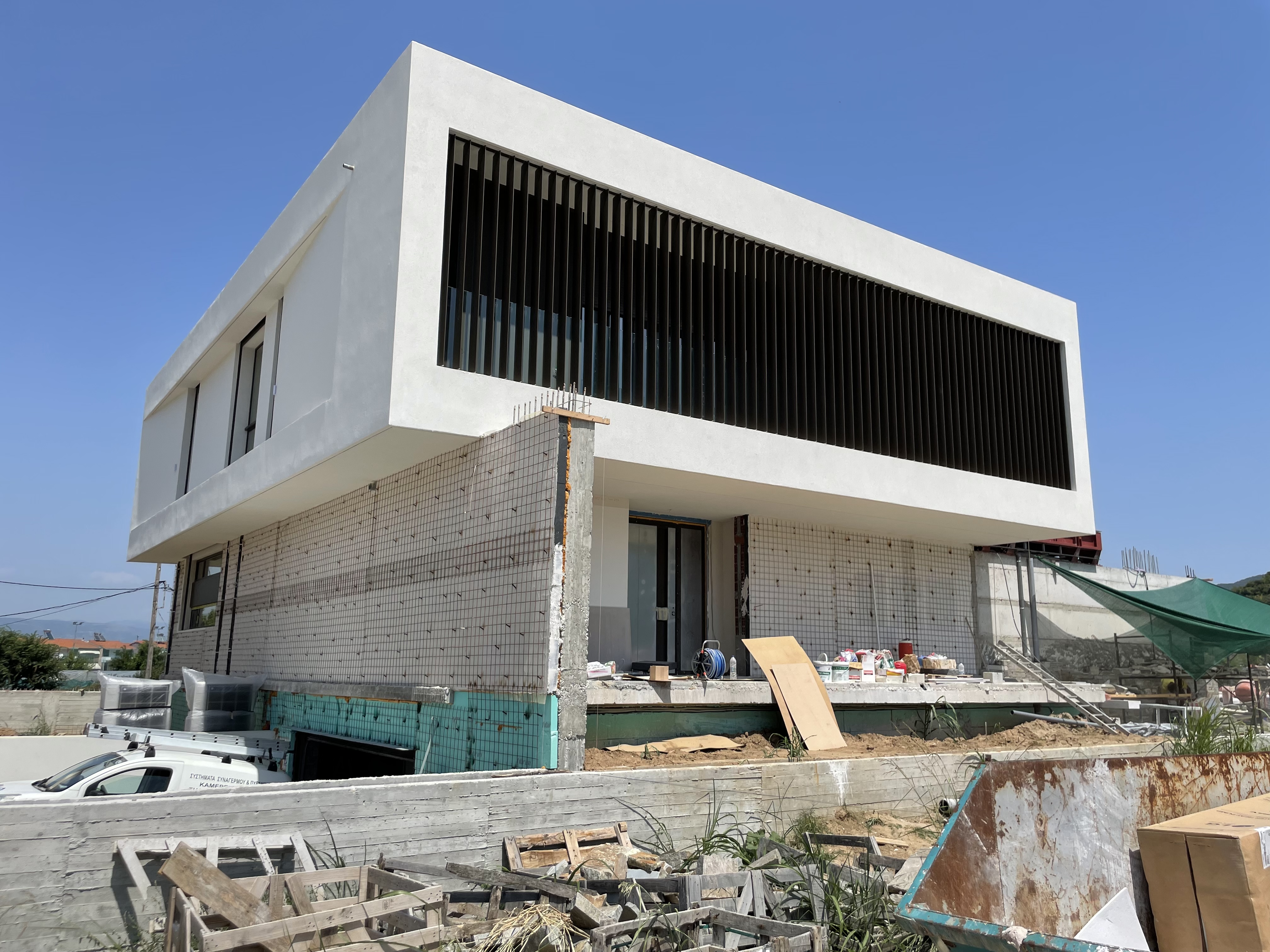Rock Face - A Mediterranean Dream, carved in Stone
Published: General // Published 12.01.2024
Stone with Rock Face finish seems to be the oldest type of finishing. A tone that carries the awareness of the Paleolithic stonecutters, continued with intense piety by the Renaissance architects, then partly forgotten by the monsters of the first Industrial Revolution, the altering shape of the stone blocks when done by hand still arouses the admiration of contemporaries today. Nowadays buildings are similar to the primitive settlements, with their cold, squat volumes, a vernacular architecture born and developed on stacked stone centuries ago.

Designed according to the ambitions of the Mediterranean Style, from the Maghreb countries to Israel and from Gibraltar to Lebanon, the dimensions of today's houses follow laborious calculations and once unimaginable rigors, the only constant element being Our Everyday Stone, yet fixed with strong adhesives. Beyond contemporary egos, Rock Face persists in spectacular designs, brilliantly stamped with the certainty of perennials.

How to lay out the Rock Face?
The Rock Face layout is an example of hand-crafted workmanship, balanced by skill and talent. The substrate is prepared according to strict rules; it must be fixed, smooth, clean, dry, and load-bearing. Once the substrate has been prepared, the essential element of veneering comes into play: the choice of irregular, polygonal stones. These should be chosen piece by piece and matched to existing sizes or adjusted to ensure a uniform, consistent veneer.

The adjustment is a rough operation, done by hand, usually with an angle grinder and hammer. Bonding is done with classic adhesives, and stacking still retains its place among the layout technologies. The speed of the layout involves repeated adjustments and varies between 2 sqm per day (for the Rock Face Flat layout), and 3-4 sqm per day (for the Filleti layout). Cement-based grouts are used when fitting joints between stones. Whether stacked or glued, Rock Face stone retains the archaic solemnity of the early millennia.
For the moment there are no comments from our users.
Write a comment or a review!